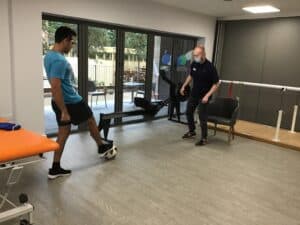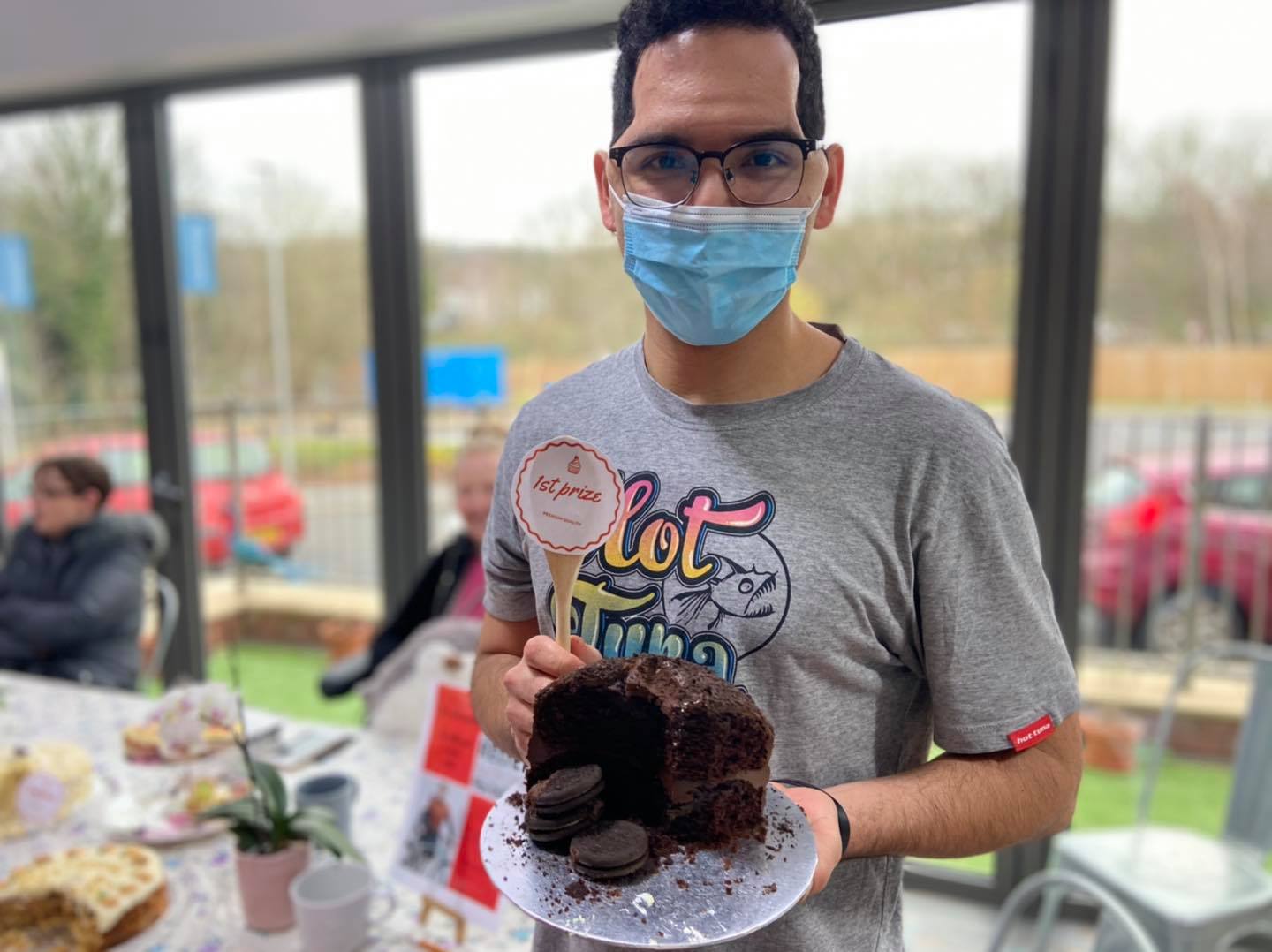Julian suffered a life-changing brain injury when he was knocked over by a moped as he was crossing the road using a pedestrian crossing in May 2017. The accident resulted in him sustaining an open skull fracture, subarachnoid haemorrhage, and subdural hematoma.
This case study, written in April 2021, provides an account of his rehabilitation journey so far and his hopes for the future.
RTA resulting in a severe brain injury.
Julian was 25 years old, originally from Majorca, but living and working as a bar tender in London when he was knocked over by an uninsured moped driver. He was rushed to The Royal London Hospital, where he underwent bilateral craniotomies to reduce intracranial pressure. After spending 46 days in hospital, he was discharged to go and live in his flat that he shared with his flat mates and brother, who was also based in London. At the time of discharge from hospital, the OT advised him that he would need further rehabilitation, and the neuro trauma team said that he would be referred to an inpatient level 2 neuro rehabilitation centre.
It is still unclear if this referral was ever made because Julian returned home and other than one visit to establish that he could climb the stairs to his flat, received no support or further rehabilitation.
In November 2017, Julian was readmitted to The Royal London Hospital to perform bilateral cranioplasty surgery to protect his brain and was cleared to fly home to Majorca to see his family in December 2017 for Christmas. Whilst away, he developed an infection and had to be admitted to hospital in Spain to have the plates in his head removed.
In January 2018, he was discharged home to stay with his mother in Spain and advised not to fly back to the UK. He heeded this advice and was cared for by his family, and in June 2019, he underwent a bilateral cranioplasty at a hospital in Majorca to improve the appearance of his head and support his neurological recovery.
Throughout his time in Spain, he didn’t receive any specialist intervention, and he was also diagnosed with epilepsy as a consequence of the brain injury.
Brain Injury Rehabilitation.
Julian’s rehabilitation journey started 3 years post-accident when he instructed his solicitor, Isidoro Bonilla at Levenes and Case Manager, Chris Dindar who referred him to STEPS Rehabilitation. In June 2020, and during the COVID-19 pandemic, Julian was assessed virtually in Majorca by Toria Chan, Founder & Clinical Director. He was subsequently flown over from Majorca and arrived at STEPS on 27th July 2020, where he isolated in his room for 2 weeks.
As the rider of the moped was uninsured, Julian’s stay at STEPS Rehabilitation is being funded by the Motor Insurance Bureau (MIB).
On arrival, Julian had vestibular balance issues and could not walk very far without assistance. He had unexplained pain in his knees and reduced mobility. Cognitively, he was suffering with headaches, migraines, epilepsy, fatigue, memory loss, and irritability. He was also struggling to manage independently and lacked the confidence to socialise with any of the clients and team at STEPS, becoming anxious and overwhelmed whenever he left his room.

Through psychology sessions, Julian is learning to manage the cognitive effects of his brain injury, including adjustments to his life changing injuries and start EDMR treatment to address his PTSD. His mobility has improved through gym work with physiotherapists and hydrotherapy sessions, and his pain has been reduced with a collaborative pain management approach including acupuncture. Julian has also enjoyed neurological music therapy with Rebekah (Chroma), having joint sessions in conjunction with physio to improve his balance and gait.
He has also relearnt functional life skills such as planning his food shopping, cooking meals, managing finances and other independent living skills, through his work with the occupational therapists. Prior to his rehabilitation, Julian struggled with executive functioning and was extremely vulnerable, requiring 24-hour supervision from his family.
Residential Brain Injury Rehabilitation.
After a few months in his own en-suite room at STEPS, Julian moved into the transitional unit, where he could be more independent and socialise with other clients. During his time at STEPS, he has gained in confidence and has formed great friendships with other clients and built strong therapeutic relationships with the STEPS team. He is also instrumental in helping and supporting other clients during their rehabilitation journeys, and is a popular, happy person to have around.
What next?
Having been inspired by the physiotherapists at STEPS (particularly Kostas!), Julian would like to train to become a physio himself and will be volunteering at STEPS to gain some work experience.
He plans on staying in Sheffield and has been supported by his occupational therapists to view flats to move into. In preparation for his transition home, he has been staying in the self-contained apartment, where he can get a feel of what living independently will be like.
Over the coming weeks, Julian will have a phased discharge with the full support of the team at STEPS, who will ensure he is fully equipped to live on his own. He plans on returning to STEPS for regular psychology, and physio sessions, and will initially have a personal assistant to support him at home and in his local community for several hours a day.
Our vocational OT is also supporting Julian as he takes the first steps towards studying for his future career.
Julian is an inspiration, his recovery and plans for the future are testament to his dedication and determination to his rehabilitation at STEPS. It also demonstrates that intensive rehabilitation can have a positive impact, even years after an accident and injury.
“STEPS is like a family and feels like a home, my future is definitely in Sheffield. Since I have been at STEPS, I have improved in every way possible. I am looking forward to my future, studying and living in my flat, where my family can come and visit me.”
